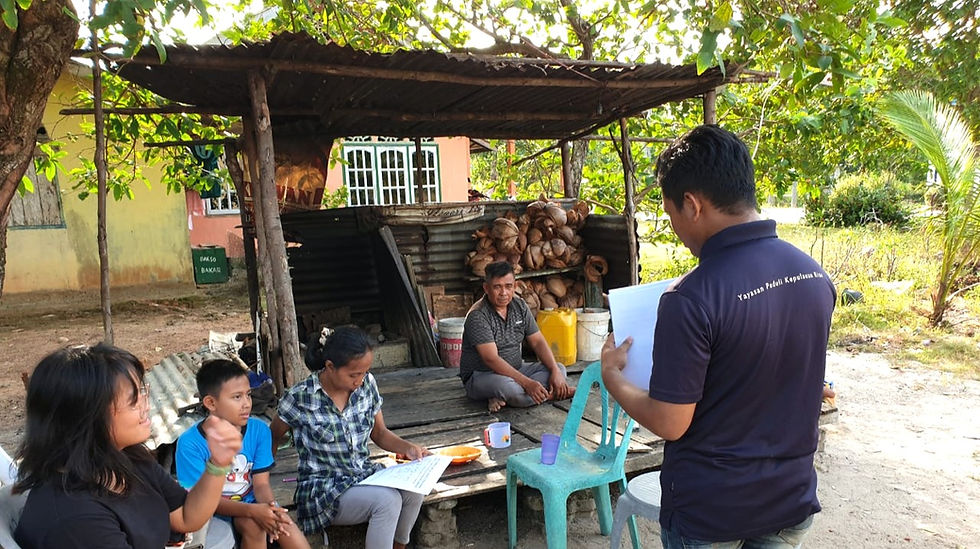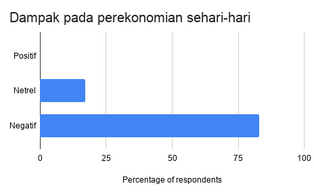TIF Newsletter March 2020
- The Island Foundation
- Apr 13, 2020
- 3 min read
Updated: Aug 31, 2021

Highlights - March 2020
Response to Covid-19
Indonesia reported its first confirmed cases of Covid-19 on 2 March 2020 and school closures were announced for Bintan Island on 17 March 2020, along with government advice to reduce social gatherings. To comply with this advice, The Island Foundation's program office and Learning Centres were closed.
Being the only not-for-profit organisation operating in east Bintan, The Island Foundation quickly began developing materials and interventions to support our partner communities. Drawing on our expertise in education program delivery, our team in Bintan went out and started doing much needed community awareness raising about the coronavirus and Covid-19 by delivering posters and tutorials about proper hand washing, and building and distributing hand washing stations for public use.
The Island Foundation's posters were the first publicly available sources of information in our partner communities, and our hand washing stations the first community-based intervention to help prevent and reduce transmission of the coronavirus. We're happy that we can respond quickly and support our partner communities during this challenging and unprecedented time.
Click on the image (left) to watch The Island Foundation's video on hand washing tutorials for students and families.
Click on the image (right) to watch a video on The Island Foundation's hand washing stations.
Community Survey
In parallel with our immediate response to Covid-19, The Island Foundation developed and conducted a Community Survey to understand how the Covid-19 pandemic is affecting our students and their families. We received 41 responses (households) to the survey, representing a 20 per cent sample of registered students.
The survey looked at levels of awareness about coronavirus and Covid-19, where and how people are receiving information, the economic impacts of the pandemic, how families were adjusting to school closures and the move to online learning, and how parents would like The Island Foundation to deliver the Education Program during this time - more detail on program delivery in the next section.
Through the data collected we can see that a very large majority of our students' families work in the informal sector. From a multiple choice format, households selected their main sources of income as fishing (68.3 per cent), running a micro business such as a food stall (17.1 per cent), and daily labour (9.6 per cent). Of the total respondents. 82.9 per cent are experiencing negative economic impacts, with half starting to feel those negative impacts back in February.
This data will help The Island Foundation to better understand how our students and their families are coping during the pandemic, will form the basis of future surveys, and will allow us to prepare mitigation strategies - for example, to prevent a drop in school enrolments - and to support the general well-being of our partner communities over the coming weeks and months.

How we are delivering the Education Program during Covid-19
The Island Foundation is committed to delivering our Education Program during the pandemic, and we are equally committed to ensuring that delivery is relevant, engaging and impactful.
While much of the world moves online, for many of our students and their families this is not possible due to inherent barriers to owning smart phones and purchasing data, and because our students prefer active learning and being outdoors!
As part of the Community Survey, we asked students' parents if and how they would like The Island Foundation to deliver the Education Program during school closures. It was a resounding "yes", with 92.5 per cent of respondents in favour, and 76.3 per cent indicating a preference for hard copy learning materials.
We are working on a two week mini-pilot for the development and distribution of weekly packs of learning materials that align with The Island Foundation's Curriculum and core learning objectives. The pilot will commence roll out in early April and includes student and parent engagement and satisfaction surveys so we can monitor relevance and appropriateness of content, and engagement with the materials.
We will be back next month to report on the findings from the pilot - stay tuned!












Comments